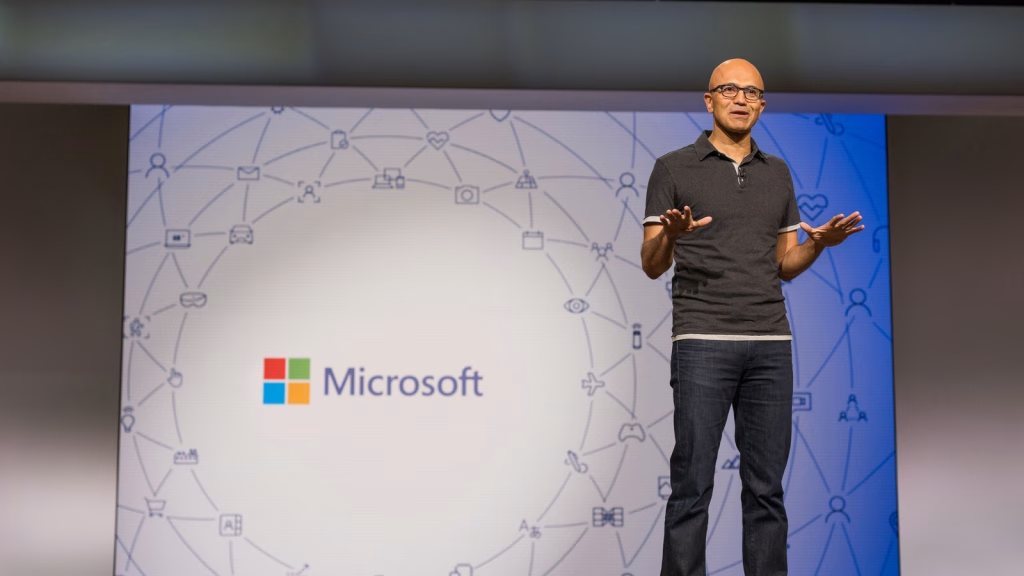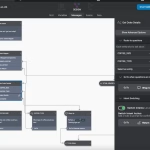The healthcare industry witnessed a seismic shift when Microsoft announced its $19.7 billion acquisition of Nuance Communications in April 2021. This landmark deal, officially completed in March 2022, represents one of Microsoft’s largest acquisitions and signals a transformative moment for artificial intelligence in healthcare. The strategic merger combines Microsoft’s robust cloud computing infrastructure with Nuance’s decades of expertise in speech recognition and healthcare-focused AI solutions, creating unprecedented opportunities for innovation in medical technology.
This acquisition extends far beyond a simple corporate merger—it represents a fundamental reimagining of how healthcare providers interact with technology, manage patient data, and deliver care. By integrating Nuance’s specialized healthcare AI capabilities with Microsoft’s Azure cloud platform and Office 365 ecosystem, the partnership promises to address some of healthcare’s most pressing challenges, from physician burnout to administrative inefficiency.
The Strategic Rationale Behind Microsoft’s Healthcare Vision
Microsoft’s decision to acquire nuance communications reflects a carefully calculated strategy to dominate the healthcare AI market. The company recognized that healthcare represents one of the largest untapped opportunities for AI transformation, with the global healthcare AI market projected to reach $102 billion by 2028, according to Fortune Business Insights.
Addressing Healthcare’s Digital Transformation Needs
Healthcare organizations worldwide are grappling with unprecedented challenges that demand innovative technological solutions. The COVID-19 pandemic accelerated digital transformation initiatives, highlighting the critical need for efficient, scalable healthcare technology platforms.
Key challenges driving this transformation include:
- Physician burnout caused by excessive administrative burdens
- Increasing patient volumes requiring more efficient care delivery
- Growing demand for telemedicine and remote patient monitoring
- Rising healthcare costs necessitating operational efficiency improvements
- Regulatory compliance requirements demanding accurate documentation
Microsoft’s acquisition of Nuance directly addresses these challenges by combining cloud computing scalability with specialized healthcare AI capabilities.
Synergies Between Microsoft and Nuance Technologies
The merger creates powerful synergies that neither company could achieve independently. Microsoft brings enterprise-grade cloud infrastructure, security, and global reach, while Nuance contributes deep healthcare domain expertise and proven AI technologies.
Primary synergy areas include:
- Integration of Dragon Medical speech recognition with Microsoft Teams
- Enhanced Azure AI services with healthcare-specific models
- Seamless connectivity between clinical workflows and Office 365
- Advanced analytics capabilities through Power BI integration
- Comprehensive security and compliance through Microsoft’s enterprise platform
Transforming Clinical Documentation with Dragon Ambient eXperience
One of the most significant impacts of the Microsoft-Nuance merger is the advancement of clinical documentation through Dragon Ambient eXperience (DAX). This revolutionary technology represents a paradigm shift from traditional documentation methods to ambient clinical intelligence.
Reducing Physician Administrative Burden
Studies consistently show that physicians spend up to 50% of their time on documentation and administrative tasks rather than patient care. DAX addresses this challenge by automatically capturing and documenting patient encounters in real-time.
Key benefits include:
- Automatic generation of clinical notes during patient visits
- Real-time transcription and interpretation of physician-patient conversations
- Integration with major Electronic Health Record (EHR) systems
- Reduction in documentation time by up to 70%
- Improved physician satisfaction and reduced burnout rates
The technology leverages advanced natural language processing to understand medical terminology, context, and clinical reasoning, creating accurate documentation that meets regulatory requirements while preserving the nuances of patient care.
AI-Powered Clinical Decision Support
Beyond documentation, the integrated platform provides intelligent clinical decision support that enhances diagnostic accuracy and treatment recommendations. The system analyzes vast amounts of clinical data to identify patterns and provide evidence-based insights.
Clinical decision support features include:
- Real-time alerts for potential drug interactions and allergies
- Evidence-based treatment recommendations based on patient history
- Population health insights for preventive care planning
- Risk stratification tools for identifying high-risk patients
- Quality measure tracking and reporting automation
Cloud Infrastructure and Scalability Advantages
The merger leverages Microsoft Azure’s global cloud infrastructure to deliver healthcare AI services at unprecedented scale. This cloud-native approach provides significant advantages over traditional on-premises healthcare IT systems.
Global Reach and Reliability
Azure’s worldwide network of data centers ensures that healthcare organizations can access AI services with low latency and high availability, regardless of geographic location. This global infrastructure supports:
- 24/7 system availability with built-in redundancy
- Automatic scaling to handle varying workloads
- Disaster recovery and business continuity capabilities
- Edge computing for real-time processing in clinical settings
- Multi-region data replication for enhanced reliability
Security and Compliance at Enterprise Scale
Healthcare organizations face stringent regulatory requirements, including HIPAA in the United States and GDPR in Europe. The combined platform addresses these requirements through comprehensive security and compliance features.
Security capabilities include:
- End-to-end encryption for all data transmission and storage
- Advanced threat protection and monitoring
- Identity and access management with multi-factor authentication
- Audit logging and compliance reporting tools
- Regular security assessments and certifications
Integration with Microsoft 365 and Teams Ecosystem
The acquisition enables seamless integration between healthcare AI capabilities and Microsoft’s productivity suite, creating unified workflows that enhance clinical efficiency and collaboration.
Enhanced Telemedicine Capabilities
Microsoft Teams for Healthcare, enhanced with Nuance’s speech recognition technology, provides a comprehensive telemedicine platform that rivals specialized healthcare communication solutions.
Integrated features include:
- Real-time transcription of telehealth consultations
- Automatic clinical note generation for virtual visits
- Secure messaging and file sharing between providers
- Integration with patient portals and scheduling systems
- Voice-activated commands for hands-free operation
The platform supports paperport for windows 11 integration, enabling healthcare providers to manage patient documents efficiently while maintaining compatibility with modern operating systems.
Collaborative Care Team Communication
The integration facilitates improved communication among care teams through intelligent routing and prioritization of clinical communications.
Communication enhancements include:
- Automated routing of urgent messages based on content analysis
- Voice-to-text conversion for rapid message creation
- Smart scheduling for care team meetings and consultations
- Integration with clinical workflows and EHR systems
- Mobile accessibility for on-the-go healthcare providers
Market Impact and Competitive Landscape
Microsoft’s acquisition of Nuance significantly alters the competitive landscape in healthcare AI, positioning the combined entity as a dominant force in the market.
Competitive Advantages Over Traditional Healthcare IT Vendors
Traditional healthcare IT companies often lack the cloud infrastructure and AI expertise needed to deliver next-generation healthcare solutions. Microsoft’s combination of technologies provides distinct advantages:
- Comprehensive cloud platform with global scale
- Advanced AI and machine learning capabilities
- Proven enterprise security and compliance framework
- Extensive partner ecosystem for healthcare integration
- Financial resources for continued innovation and development
Impact on Healthcare Technology Adoption
The merger accelerates healthcare technology adoption by providing trusted, enterprise-grade solutions that healthcare organizations can implement with confidence.
Adoption drivers include:
- Reduced implementation complexity through integrated solutions
- Lower total cost of ownership compared to multiple vendor approaches
- Proven track record in both healthcare and enterprise technology
- Comprehensive support and professional services
- Continuous innovation through Microsoft’s research and development investments
Future Innovations and Development Roadmap
The Microsoft-Nuance partnership continues driving innovation in healthcare AI, with several exciting developments on the horizon that promise to further transform medical practice.
Emerging AI Capabilities in Development
Future enhancements will expand the platform’s capabilities beyond current offerings:
- Advanced predictive analytics for early disease detection
- Personalized treatment recommendations based on patient genomics
- Real-time vital sign monitoring through IoT device integration
- Automated prior authorization and insurance claim processing
- Enhanced patient engagement through conversational AI interfaces
Integration with Emerging Technologies
The platform will incorporate cutting-edge technologies to maintain its competitive edge:
- Augmented reality for surgical planning and training
- Internet of Things (IoT) integration for continuous patient monitoring
- Blockchain technology for secure health data exchange
- 5G connectivity for real-time remote diagnostics
- Quantum computing applications for complex medical research
According to MIT Technology Review, these emerging technologies will fundamentally reshape healthcare delivery over the next decade, and Microsoft’s integrated platform positions organizations to capitalize on these innovations.
Implementation Strategies for Healthcare Organizations
Healthcare organizations considering the integrated Microsoft-Nuance platform should follow proven implementation strategies to maximize return on investment and ensure successful adoption.
Phased Deployment Approach
Successful implementations typically follow a structured, phased approach that minimizes disruption while maximizing benefits:
- Assessment and Planning Phase: Evaluate current systems and identify integration requirements
- Pilot Program Implementation: Deploy solutions in controlled clinical environments
- User Training and Change Management: Provide comprehensive training for clinical staff
- Gradual Rollout: Expand deployment across departments and facilities
- Optimization and Continuous Improvement: Monitor performance and refine configurations
Change Management and User Adoption
Technology adoption in healthcare requires careful attention to change management, as clinical workflows are deeply ingrained and resistant to modification.
Key success factors include:
- Executive leadership commitment and visible support
- Clinical champion identification and engagement
- Comprehensive training programs tailored to different user groups
- Regular feedback collection and system optimization
- Integration with existing clinical workflows and processes
Measuring Success and ROI
Organizations must establish clear metrics for measuring the success of their healthcare AI implementations:
- Reduction in clinical documentation time
- Improvement in physician satisfaction scores
- Decrease in administrative costs and overhead
- Enhancement in patient satisfaction and engagement
- Increase in clinical quality metrics and outcomes
Challenges and Considerations
While the Microsoft-Nuance merger offers significant opportunities, healthcare organizations must also consider potential challenges and limitations.
Technical Integration Complexities
Healthcare environments are notoriously complex, with multiple systems, vendors, and standards that must work together seamlessly.
Integration challenges include:
- Legacy system compatibility and data migration
- Interoperability standards and protocol differences
- Network infrastructure requirements and upgrades
- Security and compliance considerations during transition
- Staff training and workflow adaptation requirements
Cost and Budget Considerations
Implementing comprehensive healthcare AI solutions requires significant investment in technology, training, and change management.
Financial considerations include:
- Initial licensing and implementation costs
- Ongoing subscription and maintenance fees
- Staff training and productivity impact during transition
- Infrastructure upgrades and technical requirements
- Return on investment timeline and measurement
Regulatory and Compliance Implications
Healthcare AI solutions must navigate complex regulatory environments while maintaining compliance with evolving standards and requirements.
FDA Regulatory Considerations
The U.S. Food and Drug Administration (FDA) continues developing frameworks for AI-based medical devices and software, creating both opportunities and challenges for healthcare AI vendors.
Regulatory factors include:
- Pre-market approval requirements for AI diagnostic tools
- Quality system regulations for software development
- Post-market surveillance and adverse event reporting
- Clinical validation requirements for AI algorithms
- Transparency and explainability standards for AI decisions
Privacy and Data Protection Requirements
Healthcare organizations must ensure that AI implementations comply with comprehensive privacy and data protection regulations across multiple jurisdictions.
Privacy considerations include:
- HIPAA compliance for protected health information
- GDPR requirements for European patient data
- State-level privacy laws and regulations
- Cross-border data transfer restrictions
- Patient consent and data use agreements
Global Healthcare Market Implications
The Microsoft-Nuance merger has implications that extend far beyond the United States, influencing healthcare AI adoption worldwide.
International Expansion Opportunities
Microsoft’s global presence enables rapid international deployment of healthcare AI solutions, addressing diverse market needs and regulatory requirements.
Global expansion factors include:
- Localization for different languages and medical terminologies
- Compliance with regional regulatory frameworks
- Cultural adaptation for varying healthcare practices
- Partnership development with local healthcare providers
- Economic accessibility for emerging healthcare markets
Impact on Healthcare Equity and Access
AI-powered healthcare solutions have the potential to reduce healthcare disparities by providing consistent, high-quality care regardless of geographic location or provider expertise.
Equity considerations include:
- Telemedicine expansion for underserved rural areas
- Consistent diagnostic accuracy across different provider types
- Language translation capabilities for diverse patient populations
- Cost reduction through automation and efficiency improvements
- Training and education support for healthcare providers worldwide
Conclusion
Microsoft’s acquisition of Nuance represents a watershed moment in healthcare technology, combining world-class cloud infrastructure with specialized healthcare AI expertise. This strategic merger addresses fundamental challenges in healthcare delivery while positioning both companies for sustained growth in the rapidly expanding healthcare AI market.
The integration of nuance cloud capabilities with Microsoft’s Azure platform creates unprecedented opportunities for healthcare innovation, from ambient clinical intelligence to predictive analytics and personalized medicine. Healthcare organizations that embrace these integrated solutions position themselves to deliver better patient outcomes while reducing operational costs and physician burnout.
As the healthcare industry continues its digital transformation journey, the Microsoft-Nuance partnership provides a comprehensive platform for innovation that will shape the future of medical practice for years to come. The combination of proven healthcare expertise, cutting-edge AI technology, and global cloud infrastructure creates a foundation for healthcare solutions that are both immediately practical and future-ready.
Success in implementing these solutions requires careful planning, stakeholder engagement, and commitment to change management, but the potential benefits—improved patient care, reduced costs, and enhanced provider satisfaction—make the investment compelling for healthcare organizations worldwide.


